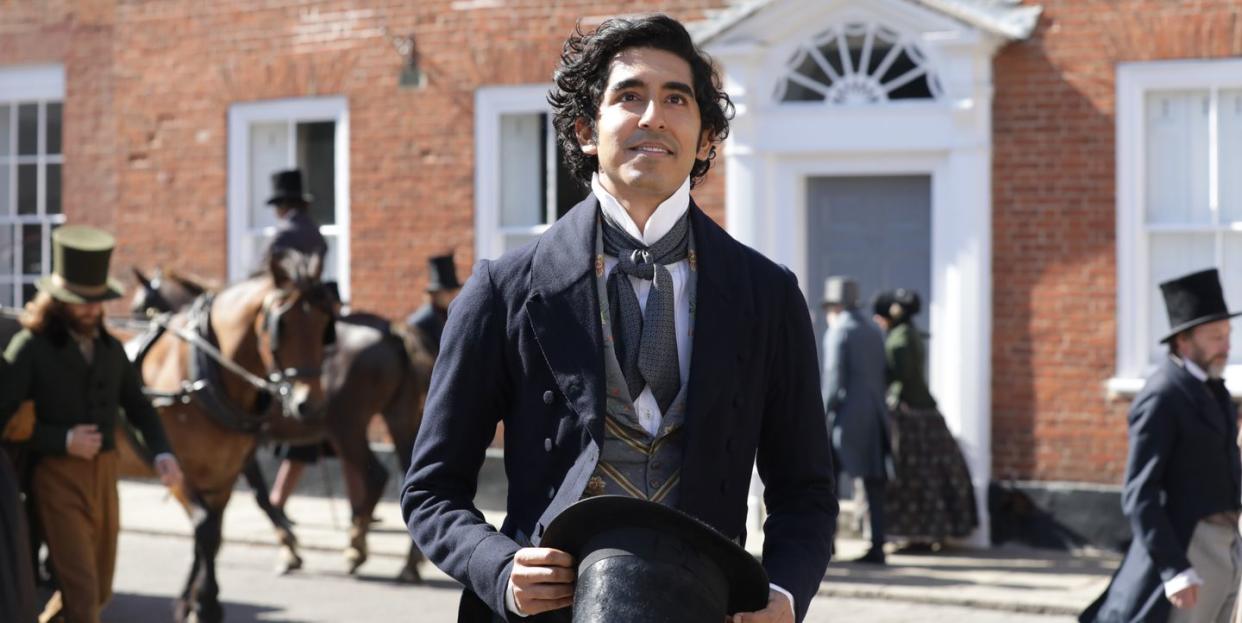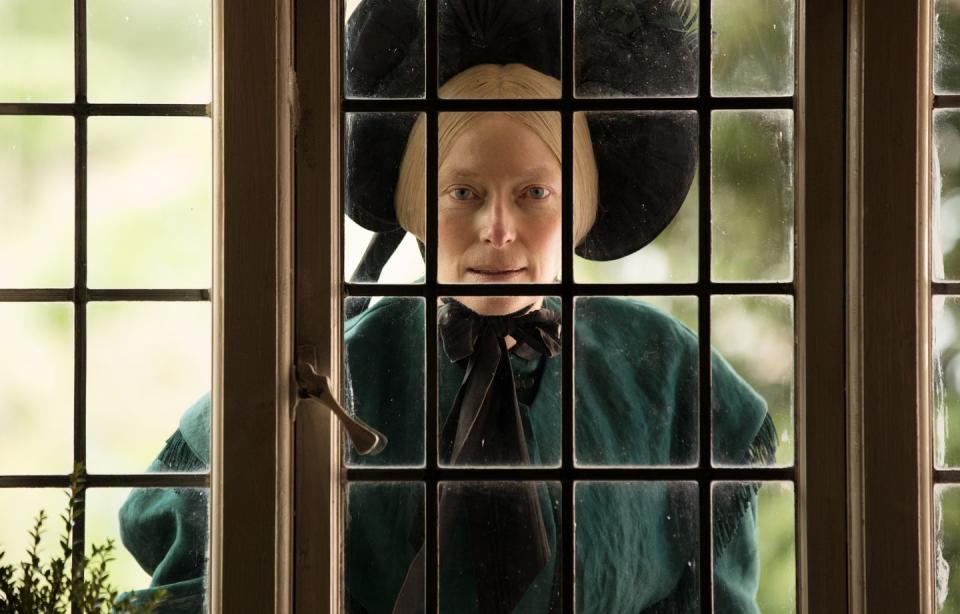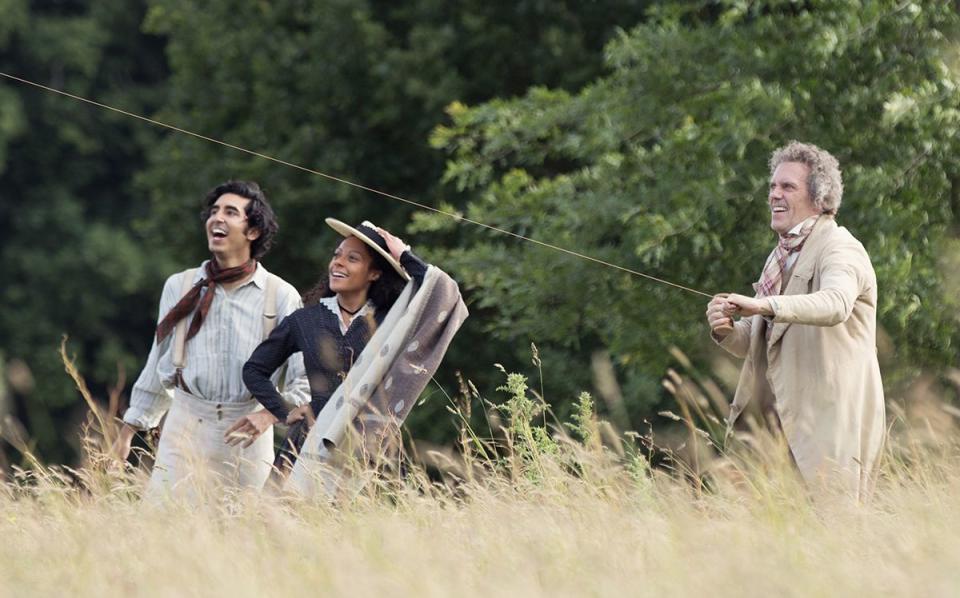Armando Iannucci on Why David Copperfield is the Perfect Story for the Modern Age

Charles Dickens’s The Personal History, Adventures, Experience and Observation of David Copperfield the Younger of Blunderstone Rookery was first published in serial installments but came out in its entirety as a book in 1850. In the 170 years since, the world has changed drastically, but Dickens’s story of a young man’s rocky adolescence and long—equally comic and tragic—road to adulthood hasn’t lost any of its impact. Nowhere is that more apparent than in The Personal History of David Copperfield (opening Aug. 28), a sharp, witty new adaptation directed by Armando Iannucci, the creator of Veep and director of films including In The Loop and The Death of Stalin.
This new Copperfield stars Dev Patel in the title role and features a top-tier supporting cast including Tilda Swinton, Gwendoline Christie, Benedict Wong, and Hugh Laurie. Iannucci and his co-writer Simon Blackwell take some liberties with Dickens’s language but stay true to the story’s spirit, depicting a young man attempting to find his place is a world that can seem stacked against him. Here, Iannucci shares what drew him to the classic tale, why he thinks it’s as relevant as ever, and whether he’s got more Dickens in his future (hint: absolutely).

What was your first interaction with the story of David Copperfield?
I've always had an affinity for Dickens. I've always loved reading Dickens and I've always seen him as a humorous writer. I think we have this idea of him as being this kind of very heavy, verbose writer of long Victorian novels, but actually, the novels I've read, especially the earlier ones, are just really very, very funny. And that's what made him famous initially, was his kind of witty writing, and stories that had this mass appeal. I've always admired that and I've always admired his ability to use the platform he had to talk about the state of the nation. I've always felt drawn towards that in terms of something to admire and try and emulate. And then I re-read David Copperfield about 10 years ago, and was struck by how modern it was as a novel.
Modern? It was published in 1850.
The whole book is about David trying to work out who he is and had very contemporary themes like status anxiety and imposter syndrome. Do I fit in? What do people make of me? Will I be found out? These seem very contemporary. The characterization as well: Mr. Dick played by Hugh Laurie, is the first really honest portrayal of mental illness in literature. There are also the sadly contemporary themes of extreme wealth and extreme poverty existing side by side in the metropolis.

What about it made you want to make a movie?
For all those reasons, and perhaps personally because it’s about a writer. Someone who more or less comes to the realization that what they are is a writer. Especially in the early part of my career, I spent my time thinking that it wasn't really a job, that I was sort of putting off having a job by writing. And then you realize, no, that is actually what you do. Plus, I kind of felt that adaptations of classic novels have a tendency to be very reverential towards the plot at the expense of everything else. So for me, it wasn't the plot at all, it was the language, it was the humor, it was the play on imagination. And that's what I wanted. That's why I thought I've got to make this as a film, because that film would give me the opportunity to do that. Yes, we'll tell the story, but I'll take liberties with the story to make it work as a film. But what I want to keep is the humor and the characterization and the play on the use of language.
I read that in casting, you wanted the movie to look like contemporary London does, that colorblind casting and the chance to make the story look like the modern world was important to you.
Briefly I thought, do we just update it to the modern day? But no, there's something about the veracity of the look of it. Really it has one foot in 1840 and one foot in the present day. We wanted to get 1840 absolutely right, so we did a lot of research. But I also felt it was important that as we're watching the film, we're not watching the past. So it was important that yes, present day was reflected in the casting. The casting really just arose because honestly, Dev Patel was the only person I could think of to play David. He for me, just seemed to sum up the spirit of David. His optimism and his creativity and his boisterousness and his vulnerability, and he had his charisma and all those things. And once Dev said yes, I thought, and that's how I have to cast everyone. Just go to the person who I think most embodies the spirit of the character, really. I said to the crew, " Let's just pretend no one has made a costume drama or a period drama, and therefore there are no rules or conventions as to how we think they're made." Let's just tell our stories the way we want to tell it, with all that energy and excitement that I found in the novel.

As a fan of the book, did you discover new parts to love when you were making this movie?
I think adaptations tend to think, well, you're not learning anything there, so we'll just leave that out, because in a film, you want everything to speak for itself and not to require any kind of explanation. For me, it's how people behave that tells the story really. Take David’s obsession with Dora; he just imagines seeing her name everywhere, and her curls everywhere, which is mentioned in the book. That's a very surreal moment, but it's actually quite truthful in terms of first love and that kind of besotted obsession. Every waking moment thinking about her. That's such a kind of honest and a familiar kind of thing. I just wanted to capture all of that and keep it at the forefront in the film.
Dickens is so often treated very reverentially, but you gave yourself permission to play with the words and plot of the story here.
That was the first decision we made really. Because Simon [Blackwell, my co-writer] did a first draft that consisted entirely of lines written by Dickens. It was a very good read, but it wasn't a movie. It was a series of episodes in the life of someone, and that immediately told us that the big decision to make was actually not to feel absolutely hidebound by the plot. To take liberties with it, but try and preserve those themes of memory, imagination, childhood, growing up, and trying to work out who you are.
Is there another Dickens book you ever think you might want to play with?
Simon and I are looking at doing a stage adaptation of one of the earlier ones, possibly Pickwick Papers or The Old Curiosity Shop—once theaters open up, which might be some time from now.
You Might Also Like

